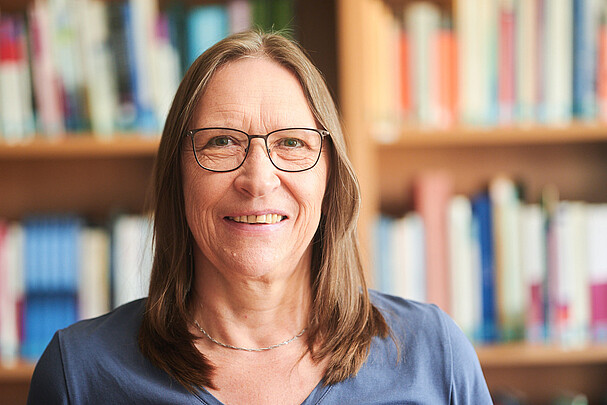from winter semester 2022/23


 ©
Arne Schütt
©
Arne Schütt
Global processes such as environmental change, migration and the digitalization of the economy are presenting humanity with major challenges. At the same time, these developments unfold differently across regions and lead to profound social as well as economic inequalities. The master's programme in economic geography addresses these regional differences, investigates their causes and examines their consequences from different perspectives. In order to understand the complex interrelationships and to develop solutions, the master's programme combines interdisciplinary approaches from geography, economics and social sciences and also offers a sound education in modern methods for research and practice.
-
Reasons to study Economic Geography in Hannover
- Integrated teaching concept: With us, you will learn to understand the complex challenges of the world (Theory), analyze them (Empirics) and develop practicable solutions (Policy). Our teaching methods are closely linked to current, practice-relevant issues, and you will benefit from study projects conducted in close collaboration with partners from politics and business.
- Internationality: Our program is distinguished by its strong international orientation. You have the opportunity to study at partner universities in both European and non-European countries or to obtain a double degree with the University of Groningen. Furthermore, internationally renowned professors enrich our curriculum as part of the annual "International Seminar in Economic Geography" (ISEG).
- Research Excellence with Multiple Professorships: The IWKG actively contributes to the scientific discourse with regular publications in internationally renowned journals. Our program integrates research and teaching, ensuring that you always benefit from the latest scientific findings.
- Diverse Career Opportunities: After graduating at IWKG, numerous exciting career opportunities open up. The excellent job prospects for economic geography fields are confirmed and documented through regular surveys of our graduates.
- Networking: Our active alumni association, WiGeoH, offers excellent networking opportunities as well as access to potential employers and internships.
- Excellent Support: You will be supported by a highly qualified team in small work groups, distinguished by their commitment and excellent international contacts – in both academic research and the private sector.
- Research support: For many who discover their interest in research, we offer the possibility of doctoral studies in both economic and cultural geography.
-
Goals of qualification
Educational objective: Qualification for professional activity in the fields of project management, location and market analysis, regional development, economic development and research, among others.
Graduates of the master in economic geography…
- are able to work independently and in a structured manner on economic geographic issues
- have in-depth knowledge of spatial relationships
- have specific knowledge in the fields of innovation, regional development, foundation and economic policy, among others
- are proficient in analytical methods with which they can describe, interpret and evaluate interrelationships
- use modern data science methods (GIS, R, ...) for the processing of questions
- are trained in presentation and lecture techniques
- have experience in project work and are team players.
-
Study experiences
![]()
![]()
![]()
Jana: "I particularly liked the international orientation of the master's in economic geography at the University of Hannover. The free choice of modules abroad is convenient for an individual orientation of the studies and is a real added value. Also in the minor subject, where you can choose between BWL and VWL, there are opportunities to deepen your own interests."
![]()
![]()
![]()
Jan: "In the master's programme in economic geography in Hannover, you don't just learn theory, but above all how to link it to a wide variety of methods and derive recommendations for action in practice. Since I didn't want to go into research, I sometimes wondered during my studies what the strong focus on methods was for. After two years of work experience, however, I have not regretted it. The way of thinking and approaching problems that I learned has helped me consistently in my job. Due to the small number of students in the master's programme, we have developed a great group dynamic despite a diverse range of disciplines in the respective bachelor degrees. I still feel very connected to economic geography and am therefore also active in the Association for the Promotion of Economic Geography in Hannover."
![]()
![]()
![]()
Matthias: "From 2014 to 2016, I studied the master's degree in economic geography at Leibniz Universität Hannover. From the beginning, I was impressed by the small learning groups, which enabled an intensive treatment of the learning content. From this learning content, I can apply the practical GIS content in particular to my everyday professional life. Also, the learned systematic analysis of large amounts of data has proven to be an advantage for me."
Course structure
From the winter semester 2022/2023 onwards, the Master in Economic Geography can be studied either exclusively at LUH (Home Track) or as a double degree programme at the University of Hannover and the University of Groningen. 65 credit points will be awarded in Hanover, and 55 in Groningen.
Completing your degree and career prospects
Completing your degree and career prospects
-
Master thesis
The topic of the Master's thesis is usually worked out together with the first examiner. The duration of the thesis is five months. Further information on the Master's thesis [in German]
-
Career prospects and fields of employment
Graduate survey of the institute [only in German]:
Die Berufsperspektiven der Alumni bestätigen, dass Absolventinnen und Absolventen des Masters Wirtschaftsgeographie aus Hannover hervorragende Berufsperspektiven in den unterschiedlichsten Gebieten haben – sowohl im öffentlichen Bereich als auch in der Privatwirtschaft. Zu den Tätigkeitsfeldern gehören unter anderem:
- Projektleitung und -entwicklung
- Wirtschaftsförderung
- Forschung
- Consulting
- Standortplanung
- Stadt-, Regional- und Umweltplanung
- Statistik, Erhebungen
- Software, GIS, IT
Zudem zeigt die regelmäßige Befragung, dass sie sich aufgrund ihrer komparativen Stärken gegen andere Absolventen durchsetzen können. Ein studienbegleitendes Pflichtpraktikum und ein aktives Alumni-Netzwerk fördern die Wettbewerbsfähigkeit der Absolventen und erleichtern den Einstieg ins Berufsleben. Einzigartig für den Wirtschaftsgeographie-Standort Hannover ist der aktive Alumniverein WiGeoH, den es seit 2016 gibt, und der regelmäßig Berufsinformationsveranstaltungen für Studierende anbietet.
-
Career fair (Institut of Economic and Cultural Geography)
In the job exchange of the institute you will find job offers, internships and student jobs:
Formalities and regulations
The regulations appertaining to the organisation and administration of a degree programme and its examinations are described and laid down so as to be legally binding in the examination regulations (PO). They regulate the examination requirements and the procedure to be followed. They specify which modules involve examinations and course work as well as the number and type of examinations.
They also contain stipulations on the time allowed to prepare final theses. The examination regulations lay down which information has to be provided when registering for an exam; whether documentary proof has to be submitted and if so, what is needed; the time frame for holding repeat examinations, and what the procedure is when examinations are missed.
Participating institutions and their people
Programme coordination and academic advice
Programme coordination


30167 Hannover


Course advisor


30167 Hannover










